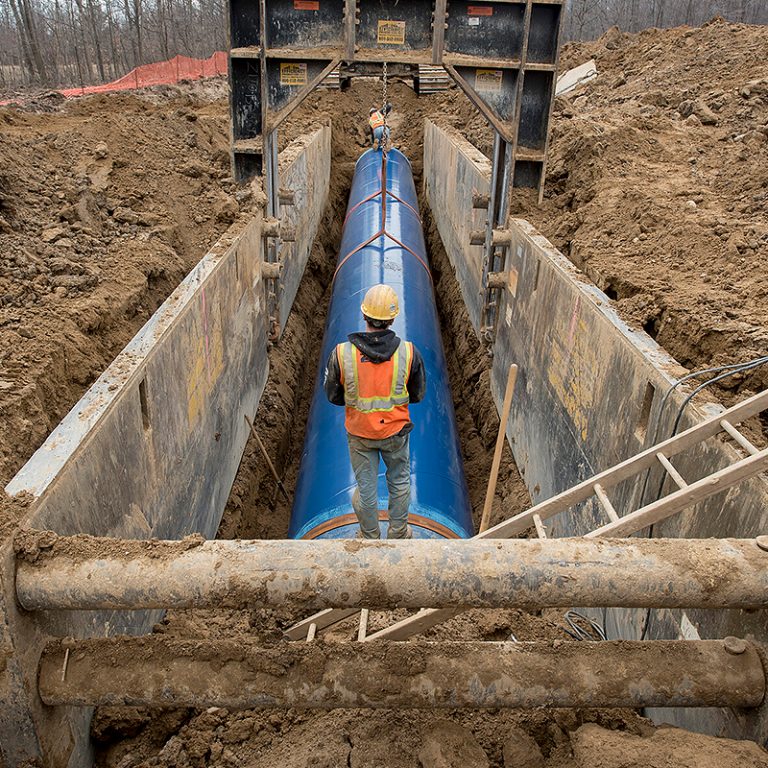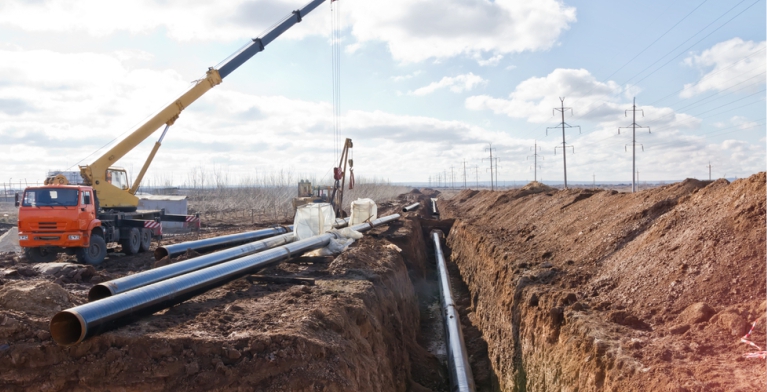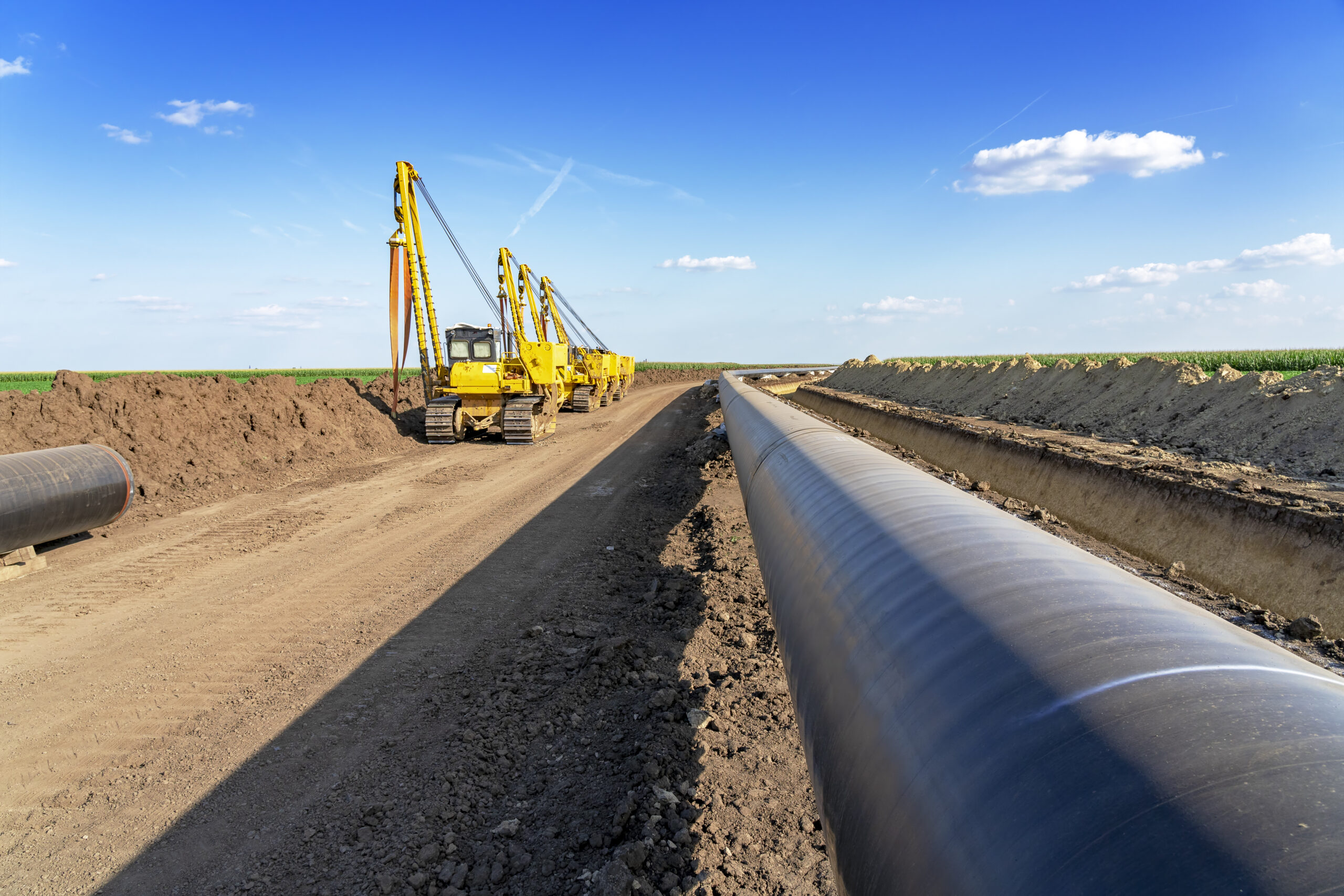Pipeline Construction Excellence’s Impact on Reduced Costs
Why Pipeline Construction Is Necessary for Energy Infrastructure Development
Pipeline construction plays an essential duty in the advancement of energy infrastructure, functioning as the foundation for the transport of crucial resources like oil and all-natural gas. This complex network not only helps with effective circulation yet likewise bolsters economic growth via job creation and regional investment. Furthermore, advancements in safety technologies are dealing with environmental worries, placing pipelines as a cornerstone of lasting power approaches. However, the intricacies surrounding pipe tasks raise vital inquiries concerning regulatory frameworks and their long-lasting effect on neighborhoods and ecological communities. Checking out these dimensions exposes a complex narrative that requires cautious factor to consider.
Duty of Pipelines in Energy Supply
The vital function of pipelines in power supply can not be overemphasized, as they offer as the foundation of contemporary energy infrastructure. Pipelines are important for the effective transportation of numerous types of energy, including oil, gas, and improved items. They facilitate the movement of these resources from removal websites to refineries and circulation centers, ensuring that energy reaches customers in a timely manner.The construction of pipelines involves careful preparation and adherence to regulatory requirements, showing the intricacies of the energy market and ecological factors to consider. Efficient pipeline networks are developed to decrease transportation times, minimize costs, and boost safety, while additionally addressing potential ecological influences. The capacity to transport big quantities of power over cross countries makes pipelines a preferred option for energy firms seeking to maximize their supply chains.Moreover, pipelines add to energy security by branching out supply courses and sources. As global energy demands fluctuate, pipelines enable areas to accessibility various power materials, mitigating risks linked with reliance on solitary resources. This diversification cultivates affordable prices and supports markets, which is critical in a progressively interconnected worldwide economy.In enhancement to their logistical advantages, pipelines support local economic climates by producing work during construction and maintenance phases. The presence of a durable pipeline infrastructure also draws in investments in energy jobs, even more improving regional advancement. Ultimately, pipelines are indispensable to the energy sector, giving a dependable and reliable means of transportation that underpins economic development and sustainability.

Benefits of Reliable Transportation
Effective transport via pipeline systems provides considerable benefits, including minimized transport expenses and boosted distribution rate. These benefits not just improve the general economics of energy distribution yet likewise play an important role in reducing the ecological effect linked with power transport. As energy demands remain to climb, the value of maximizing transportation methods ends up being progressively evident.

Lowered Transportation Expenses
Decreased transportation prices stand for a significant advantage in the domain of power infrastructure growth. The construction of pipelines provides a much more financially feasible means of transferring energy resources contrasted to alternate methods such as trucking or rail transport. Pipelines, once established, permit the continual circulation of oil, gas, and other products over fars away with very little functional costs.One of the primary reasons for minimized transportation costs is the efficiency of pipeline systems. They can deliver large quantities of materials concurrently, thereby spreading dealt with prices over a higher quantity of item. This mass transportation capability significantly reduces the expense each, making power resources extra affordable for customers and businesses alike.Additionally, pipelines lessen the dangers and costs connected with handling and storing volatile materials. Unlike rail or road transport, which can sustain hold-ups and damages, pipelines supply a more secure and a lot more constant approach of energy transportation. This integrity improves the financial feasibility of energy tasks, allowing for much better prices frameworks in competitive markets. Ultimately, decreased transport costs foster an even more lasting energy market, advertising broader accessibility and motivating financial investment in more development.
Improved Distribution Speed
Pipelines considerably enhance distribution rate in energy transport, providing a vital advantage over standard methods such as trucking or rail systems. The constant circulation of materials with pipelines permits a steady and reliable transport procedure, minimizing delays related to loading and discharging. This constant motion is especially necessary for energy resources, where demand can change rapidly.Moreover, pipelines can run around the clock, untouched by website traffic problems or weather-related disruptions that can hamper road or rail transportation. This integrity guarantees that energy products reach customers promptly, supporting operational needs and reinforcing financial security. On top of that, the scalability of pipeline systems facilitates the handling of big quantities of power, which is important for satisfying the growing requirements of sectors and property sectors.Furthermore, the combination of innovative surveillance and control technologies in pipe systems improves the distribution process. These technologies enable real-time monitoring of circulation prices and system stress, assuring that any kind of potential issues are addressed quickly. On the whole, the improved shipment speed given by pipelines is a significant consider optimizing power facilities and ensuring that supply chains continue to be durable and receptive to market needs.
Ecological Effect Considerations
The advantages of speedy power transport extend beyond logistical benefits; they also incorporate considerable ecological factors to consider. Reliable pipeline systems allow for the transportation of energy resources with minimal disruption to environments contrasted to alternate approaches such as vehicle or rail transport. Pipelines can promote the motion of oil, gas, and various other products in a highly focused fashion, which reduces the carbon impact connected with energy distribution.Moreover, pipelines are created with advanced security and monitoring modern technologies that considerably reduced the danger of spills and leakages. A reliable pipe facilities lessens the need for constant transport activities, which can bring about reduced greenhouse gas exhausts with time (Midland Pipeline Construction Authority). Additionally, the ability to transport energy resources straight to customers reduces reliance on even more contaminating transport techniques, further benefiting air quality.In addition, calculated pipeline positioning can aid protect sensitive habitats by following existing corridors, consequently lowering the effect on wild animals and natural landscapes. On the whole, the construction of pipelines not just sustains energy framework development however likewise provides an eco liable means of transporting power, adding to a much more lasting future
Economic Impact of Pipeline Projects
The financial influence of pipe projects prolongs past simple transport effectiveness, significantly affecting click over here regional and local economic climates. These initiatives create task possibilities during both construction and continuous operations, promoting community advancement (Pipeline Construction Authority). Additionally, the excitement of economic development with raised financial investment and framework improvement is a key benefit of pipe construction
Job Development Opportunities
While power infrastructure jobs often deal with scrutiny, they present significant task development chances that can favorably influence neighborhood economic climates. Pipeline construction projects require a varied variety of knowledgeable labor, consisting of designers, project supervisors, and specialized service technicians, as well as unskilled workers for numerous roles. This multifaceted need for labor can lead to the creation of countless tasks throughout the construction stage and commonly results in long-term employment possibility once the framework is operational.In addition to route work, pipe jobs stimulate neighborhood economic situations by producing supplementary task opportunities in sectors such as transport, manufacturing, and friendliness. Neighborhood businesses Recommended Site benefit from boosted demand for goods and solutions, adding to total economic wellness. Additionally, the influx of workers can bring about enhanced tax profits for city governments, which can be reinvested in community solutions and infrastructure.Moreover, pipe construction tasks typically prioritize working with regional employees, promoting a feeling of neighborhood investment and support. By linking the space in between power supply and need, these projects not just boost power safety but additionally function as drivers for financial advancement, strengthening the importance of pipeline construction in work development initiatives.
Economic Development Stimulus
Pipeline jobs function as a powerful financial growth stimulation, driving significant investments right into regional and local economic climates. The construction and procedure of pipelines create a causal sequence, generating need for products, tools, and solutions (Midland Pipeline Construction Authority). This influx of funding supports neighborhood services, from manufacturing to friendliness, fostering a durable financial environment.Moreover, these projects create significant tax obligation incomes for towns and states, which can be reinvested in civil services, facilities renovations, and community advancement campaigns. The economic advantages expand beyond immediate task creation, as competent labor is usually required for ongoing maintenance and operations, making certain lasting work opportunities.Additionally, the enhanced energy framework assists in the reliable transport of sources, potentially reducing energy expenses for consumers and organizations alike. By enhancing energy ease of access, pipelines can bring in brand-new markets and stimulate growth in existing markets, adding to general financial diversification
Environmental Factors To Consider and Technologies
Balancing power requires with eco-friendly stability comes to be significantly crucial as pipe construction increases. The quest of efficient power transport must make up environmental impacts, requiring ingenious techniques and modern technologies that lessen environmental interruption. Modern pipeline jobs are increasingly integrating advanced environmental assessments at every stage, ensuring that possible threats are determined and reduced early in the preparation process.One notable innovation in this area is the adoption of trenchless innovation, which permits the setup of pipelines without substantial surface area interruption. This method minimizes habitat fragmentation, preserves existing ecological communities, and decreases the carbon footprint related to typical excavation methods. Furthermore, real-time surveillance systems geared up with sensing units enable drivers to identify leakages or environmental modifications rapidly, thus assisting in prompt actions to prospective hazards.Moreover, the consolidation of eco-friendly products and construction strategies is gaining grip. Naturally degradable drilling liquids and corrosion-resistant coatings can substantially decrease the ecological footprint of pipe projects. Companies are additionally devoting to bring back environments post-construction, using native plant species to help in ecosystem recovery.Collaboration with ecological companies and local areas is essential - Pipeline Construction Excellence. Engaging stakeholders in the decision-making procedure cultivates openness and advertises sustainable techniques, making certain that energy facilities development lines up with ecological stewardship
Obstacles in Pipeline Construction
Amidst the growing demand for power framework, numerous obstacles make complex the construction of pipelines. Among the key problems is the geographical irregularity of pipeline paths, which can traverse diverse landscapes, including mountains, rivers, and metropolitan locations. Each setup calls for tailored engineering services to attend to environmental defense, geological stability, and logistical constraints.Additionally, the general public understanding of pipeline jobs often poses a significant obstacle. Local areas might express worries regarding potential environmental effects, safety threats, and interruption throughout construction. This opposition can lead to hold-ups, enhanced costs, and the necessity for extensive community engagement approaches to promote acceptance.Moreover, labor scarcities in skilled professions even more make complex pipeline construction efforts. As the need for energy facilities grows, the accessibility of experienced workers reduces, which can bring about project hold-ups and enhanced labor prices. The pipeline sector should invest in workforce growth initiatives to cultivate a proficient labor force with the ability of satisfying the evolving demands.Safety continues to be a paramount worry throughout the construction process. The industry deals with the challenge of guaranteeing that all security protocols are followed, as even small lapses can result in substantial accidents. This demands strenuous training and oversight to preserve operational integrity.Lastly, rising and fall product prices can affect project spending plans and timelines. The requirement for premium materials, coupled with market volatility, calls for mindful financial preparation and risk reduction methods to keep projects on course. Dealing with these obstacles is crucial for the successful and effective construction of pipelines as component of a durable power infrastructure.
Regulative Framework and Conformity
The regulative framework governing pipeline construction is complicated and multifaceted, needing compliance with a variety of government, state, and regional laws. At the government level, companies such as the Federal Energy Regulatory Payment (FERC) and the Pipeline and Hazardous Products Safety And Security Management (PHMSA) play vital roles in looking after pipe jobs. FERC controls the transport of natural gas and oil, authorizing jobs based on financial requirement and public interest, while PHMSA concentrates on safety criteria and the stability of pipeline operations.State policies can differ substantially, with private states imposing their own permitting processes, safety regulations, and environmental assessments. State public energy compensations might require added analysis of recommended paths to guarantee very little interruption to neighborhoods and communities. Compliance with the National Environmental Policy Act (NEPA) is also required, mandating extensive ecological influence evaluations prior to project approval.Local regulations might further make complex the compliance landscape, as towns frequently have specific zoning regulations, land use regulations, and neighborhood involvement demands. Engaging with neighborhood stakeholders is not only a governing requirement yet also an ideal method to promote smoother project execution.Moreover, the governing landscape is consistently advancing, influenced by public sentiment, technical developments, and ecological plans, necessitating constant alertness from pipe operators. Guiding through this detailed governing framework is crucial for validating that pipeline construction jobs are not only lawfully compliant however additionally socially liable and eco lasting, thus adding to the general efficiency of energy facilities growth.
Future Fads in Pipeline Framework
A considerable makeover is underway in pipe framework, driven by advancements in technology, developing energy needs, and boosting environmental awareness. As the worldwide energy browse this site landscape shifts in the direction of sustainable sources, pipeline systems are adjusting to suit varied energy types, including gas and biofuels, while also incorporating a lot more innovative surveillance and safety technologies.One remarkable trend is the unification of electronic services, such as Web of Things (IoT) devices and expert system (AI), which improve real-time tracking and anticipating maintenance capacities. These technologies not just boost operational performance however additionally substantially minimize the threat of leaks and accidents, making sure greater ecological protection. Additionally, making use of innovative materials, such as composite pipelines, is gaining traction as a result of their resilience and resistance to rust, further extending the lifespan of pipeline systems.Moreover, the emphasis on sustainability is motivating the development of greener construction practices. Strategies such as trenchless technology reduce land interruption and environmental effect, straightening pipeline jobs with modern-day ecological requirements. Additionally, governing structures are progressing to promote openness and responsibility in pipe procedures, making sure stakeholders are much more informed regarding potential risks and advantages.
Regularly Asked Questions
Exactly How Do Pipelines Contrast to Various Other Transportation Methods for Energy Resources?
Pipelines provide a cost-effective, efficient, and eco-friendly technique for transferring energy sources contrasted to choices like trucks and trains, which often incur higher functional expenses, better land use, and boosted greenhouse gas exhausts. - Pipeline Construction Excellence

What Materials Are Typically Used in Pipeline Construction?
Typical materials used in pipe construction include carbon steel, stainless-steel, and plastic compounds. These products are chosen for their strength, longevity, deterioration resistance, and viability for numerous environmental conditions and kinds of carried energy sources.

How Lengthy Does It Typically Take to Develop a Pipe?
The duration for pipe construction varies considerably based upon variables such as length, terrain, and regulatory demands. Typically, it can range from several months to a few years, depending upon project intricacy and ecological factors to consider.
That Are the Trick Stakeholders in Pipeline Projects?
Secret stakeholders in pipe projects include federal government companies, regulative bodies, power companies, ecological organizations, regional communities, and landowners - Midland Pipeline Construction Authority. Each group plays a vital function in preparation, allowing, construction, and ongoing operations of pipe infrastructure
What Are the Main Precaution Throughout Pipeline Construction?
Throughout pipeline construction, primary precaution consist of strenuous website assessments, adherence to regulative standards, extensive training for employees, the usage of individual protective equipment, and continuous surveillance of environmental conditions to minimize dangers and guarantee operational safety and security.